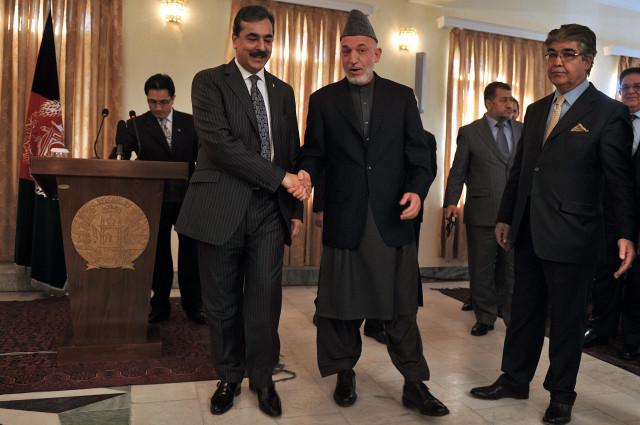New deal?
Gilani and Karzai must remember that within both their countries there are elements that do not want equilibrium.

Also of relevance were Prime Minister Gilani’s clear remarks that Afghanistan needed to deal with its own process of internal reconciliation. In the past, Islamabad had asserted the need for it to play a role in any dialogue between the Afghan government and the Taliban, raising hackles in Kabul.
It is essential that Islamabad and Kabul work together if there is to be any hope of solving the acute problems the region faces, and which arise from the militancy that has, in many ways, paralysed the working of both states. It is necessary that the cooperation needed to do so be built, and the apprehensions and suspicions of both countries concerning the other be put at rest. In this respect, the efforts by the Pakistan prime minister to talk directly to sections of the Afghan people and the agreement to push up trade ties are also significant.
The leaders of both nations must build on the bridges built in Kabul. But while they do so, they must also remember that within both their countries there are elements that do not want equilibrium. Some in Islamabad seek to control Kabul — as they have done in the past; in Kabul this generates a sense of hostility. These issues need, in time to be addressed by the civilian leaderships of the two countries so that they can move as rapidly as possible towards a relationship that can bring maximum benefit to their people.
Published in The Express Tribune, December 13th, 2010.













COMMENTS
Comments are moderated and generally will be posted if they are on-topic and not abusive.
For more information, please see our Comments FAQ